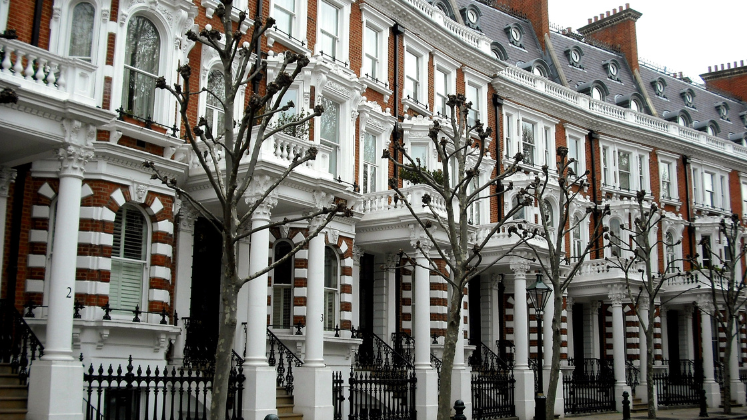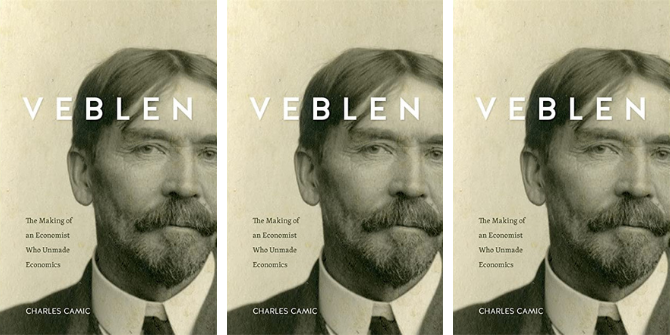In Serious Money: Walking Plutocratic London, Caroline Knowles takes readers on a journey through London to discover how it has become a haven for plutocrats and the super-rich. Full of rich ethnographic observations, this is an innovative and disturbingly entertaining travelogue covering one of the most important issues of our time, writes Matt Reynolds.
Serious Money: Walking Plutocratic London. Caroline Knowles. Allen Lane. 2022.
Find this book (affiliate link):![]()
 As so many struggle to survive the cost of living crisis, billionaires enjoy a hoard of wealth which grew more during COVID-19 than the previous fourteen years combined. Caroline Knowles’s Serious Money: Walking Plutocratic London could not have been published at a more critical time.
As so many struggle to survive the cost of living crisis, billionaires enjoy a hoard of wealth which grew more during COVID-19 than the previous fourteen years combined. Caroline Knowles’s Serious Money: Walking Plutocratic London could not have been published at a more critical time.
In her previous book, Flip-Flop: A Journey Through Globalisation’s Backroads, Knowles tracked every step of the production and consumption of this everyday item and, in doing so, exposed the behemoth of global capitalism as a chaotic chain of human endeavours. Serious Money similarly looks beyond abstract wealth statistics and luxury voyeurism to find a group of people who are incredibly privileged, but also miserable, unfulfilled and paranoid. Knowles makes it clear, however, that they do not deserve our sympathy; instead she highlights how easily we might redistribute their wealth.
Serious Money is an academic sociological study, but you would be forgiven for not realising this at first glance. It opens with a ‘cast of characters’: a list of Knowles’s interviewees with pseudonyms like ‘Blazer’ and ‘Sturgeon’ to reflect their idiosyncrasies. After this, the reader sees an illustrated map befitting a fantasy novel, with ‘Caroline’s route’ from London’s financial district, through Mayfair and Kensington, and all the way out to suburban Surrey. Then, we are treated to 20 chapters of novelistic prose filled with rich ethnographic observations. Knowles occasionally pauses to cite fellow academics, though only to strengthen her argument with similar observations. The more sociologists who write in this style, the better the discipline can engage audiences outside of its bubble.

Image Credit: Crop of ‘Kensington’ by Klovovi licensed under CC BY 2.0
Luxury abounds in every chapter, from ‘humane’ caviar to underground swimming pools, but Knowles frequently reminds the reader of the inequality, gentrification and homelessness in the wealthy’s shadow. This is most powerful in the chapter ‘The Burning Tower’, exploring the aftermath of the 2017 Grenfell fire which killed 72 people and upended the lives of many more.
We meet two wealthy neighbours from Notting Hill, ‘Palace’ and ‘Desk’, who volunteered to support the victims of the disaster. This included handing out clothes to the affected families, but Palace’s charity was met with resentment when she donated second-hand designer clothes: ‘There is only so much a large lady of Muslim origin can do with a tiny Gucci handbag […] One woman said to me in disgust “I don’t want someone else’s clothes”’ (122). Desk is also nervous, simultaneously pitying those affected while defending her councillor friends who worked for the council found liable for a number of the deaths. Knowles masterfully captures the unease of plutocrats wrestling with the fact that they are the cause of inequality and not its solution.
Beyond conflicts between the privileged and the non-privileged, Knowles also charts a variety of intra-wealthy battles. This includes debates between ‘old money’ and ‘new money’, over how deep a basement should be, but also the more familiar tensions of male-female relationships. Of course, such intimate details are hard to come by. As a researcher of the wealthy myself, I sympathise with the access issues Knowles met along her walk and I admire her innovative workarounds. She recruited one interviewee, ‘Investigator’, to send live messages via WhatsApp from inside an exclusive private club with rich older men and young women, where ‘sexual and financial assets stare each other down’ (80). In another chapter, Knowles skips research participants altogether via the court records of a divorce trial to show us how dynastic wealth is protected by the rich and their legal intermediaries.
Knowles only mentions Thorstein Veblen’s Theory of The Leisure Class once in passing, presenting ‘conspicuous consumption’ as an underdeveloped precursor to Pierre Bourdieu’s theory of distinction. This is a shame since both authors share a similarly enjoyable vicious tone and there are obvious parallels between the original and current ‘Gilded Age’.
Additionally, Knowles could have built upon Veblen’s less famous theory of ‘conspicuous leisure’ when looking at the wealthy’s use of paid domestic service. Serious Money is littered with references to ‘servants’, but they are given the most focus in the chapter where Knowles talks to ‘Butler’, a loyal household manager for Middle-Eastern royals for the previous seventeen years. Though he is subordinate to his employers, he is still a manager and quite patronising towards those working below him: ‘The first thing you do, you get on the right side of the Filipinos […] They’re very nice people. They’re very hardworking […] If they go against you, they’re going to make your life hell’ (187-88).
It would have been nice to hear the domestic workers’ own side of this story (according to Butler, it sounds like they are one insult away from re-enacting the plot of Korean thriller Parasite). The focus of the book is rightly on the super-wealthy, but given how many middle-class intermediaries like ‘Butler’ are interviewed, why are the working-class cleaners and security guards seen but not heard? This is a surprising choice, given that Knowles gave space to interviews with Filipina domestic workers in her 2010 co-authored book, Hong Kong: Migrant Lives, Landscapes, and Journeys.
Additionally, it is disappointing to see the archaic term ‘servant’ used as most domestic workers would find this demeaning in 2022. Certainly, they are still treated as subordinates. Yet, listening to a grassroots union like the Voice of Domestic Workers, one finds a workforce who describe themselves as vital reproductive labourers, rather than as ‘invisible, mute, machine-people’ (194). I believe that describing workers in this way, without including their own accounts, runs too great a risk of further stigmatising domestic labour, even if the intention is to highlight the stark inequalities between employer and employee. Nevertheless, almost every other character in this book gets exactly the description they deserve.
The word ‘plutocracy’ comes from the Greek words for money and rule, and Knowles has shown how complex the relationship between wealth and power is through closely observing the frailties of the human condition. Serious Money ends with a rallying cry for ending the rule of the super-rich, and this is the perfect way to close such an accessible piece of sociology. For academic audiences, however, I hope that this is not the last piece of work that Knowles will do on the super-rich. Her observations and conclusions have the potential to engage with unresolved questions in the sub-field of ‘elite studies’ —such as ‘are the wealthy hypermobile transnationals or still rooted to nation states?’ and ‘are plutocrats a distinct class or something different?’ In any case, Serious Money is an innovative and disturbingly entertaining travelogue covering one of the most important issues of our time.
Note: This review gives the views of the author, and not the position of the LSE Review of Books blog, or of the London School of Economics and Political Science. The LSE RB blog may receive a small commission if you choose to make a purchase through the above Amazon affiliate link. This is entirely independent of the coverage of the book on LSE Review of Books.







